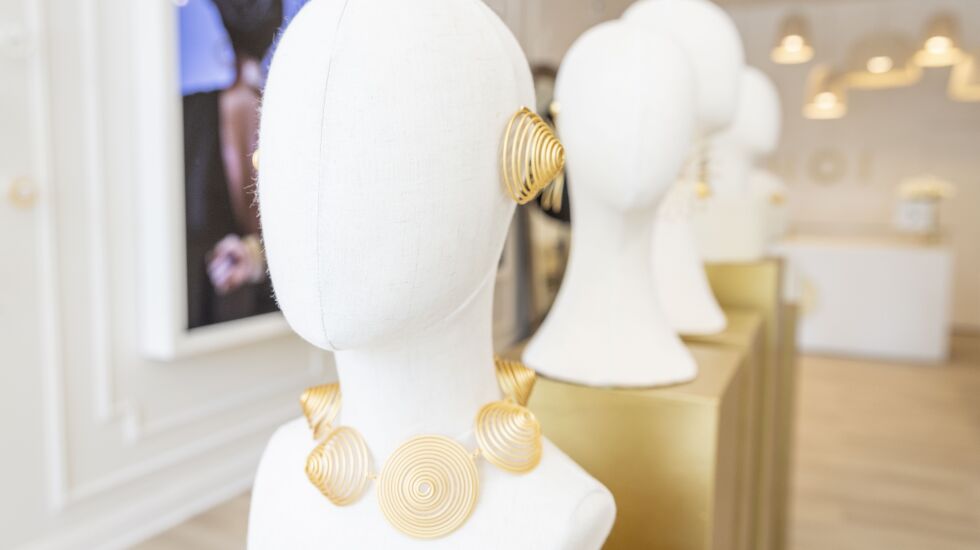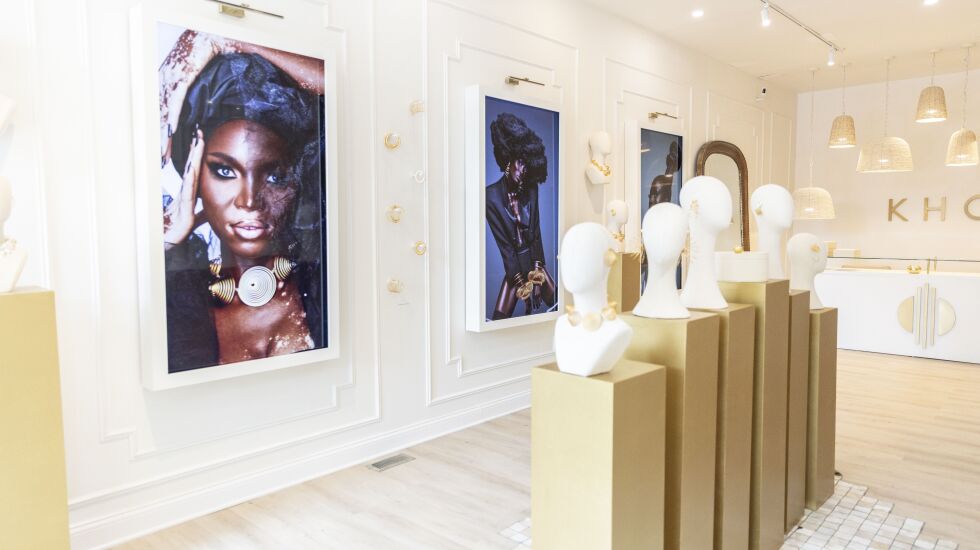
Hayet Rida launched a jewelry studio in Bucktown this year that defied the typical rules of brick-and-mortar retail.
She poured her savings into a store design that evokes an art gallery, opened on weekends and zeroed in on a small-batch, hand-designed, limited-edition collection she designs herself on her iPad.
Then, the layoff notice came. The same month she opened KHOI, she lost her job as a creative strategist with the social media giant Meta.
For a moment, things looked grim.
A regular Instagram user, Rida documented it all, sharing the highs and lows of entrepreneurship to an Instagram following of nearly 130,000.
Then, her prospects improved. She was invited by the Black in Fashion Council to be one of 10 Black designers to exhibit work in a discovery showroom at New York Fashion Week, which starts Sept. 7.
In the span of a year, Rida, 34, has gone from e-commerce designer to boutique owner to featured name at New York Fashion Week.
The decision to open a physical location for her business in Chicago was her biggest leap. She had to hire contractors, secure permits and figure out zoning.
Despite a tight budget, Rida found peace of mind in her strategic planning skills to keep pushing the business forward.

She said she also learned that sometimes money isn’t the sole challenge in opening a business.
“I thought having enough money and resources and planning would be the challenge, but really it’s about having trust in the process,” Rida said. “One day, everything could be going according to plan, and, the next day, a contractor can call and say something happened, and now we’re 10 weeks off schedule. A lot of things that happen when opening a business are unforeseen no matter how prepared you are.”
Despite the proliferation of online retail ordering during the pandemic, the retail market is extremely strong for brick-and-mortar retailers, according to Meredith Oliver, senior vice president of CBRE Global Commercial Real Estate Services.
“People rediscovered shopping to an extent after getting frustrated with the delivery side of things as a result of supply-chain issues for a long time during COVID,” Oliver said. “If something isn’t available online, shoppers will just get it from a store instead.”
At Rida’s boutique on North Damen Avenue, the pieces aren’t locked under glass counters or hanging in rows on swirling jewelry towers. They’re positioned on mannequins similar to the way you’d view a marble bust at a museum — like an exhibition on display.
Rida, who has 10 employees, designed the store to be an experience — and for her Ghanaian roots to shape the decor. Editorial-style photos on a wall of models adorned in her jewelry designs were shot by a creative team in Ghana.

Designing her pieces in small-batch collections that come and go, Rida says the feel of the store changes as the arrangement of the pieces change.
For now, that’s something customers can see only on weekends. Rida said her limited operating hours encourage people to take their time in the store — not just pop in and out on a lunch break or on the way home.
Oliver said many digital-native retailers who open a store limit their hours to keep labor tight and that it isn’t as risky a move as it might seem.
“They must have an Internet-savvy customer base who’s going to go online and check the hours of the store to make sure that it’s open,” Oliver said.
Rida said she’ll keep telling her story online.
“I think it’s important to share at all stages so people can see that everyone struggles.”







